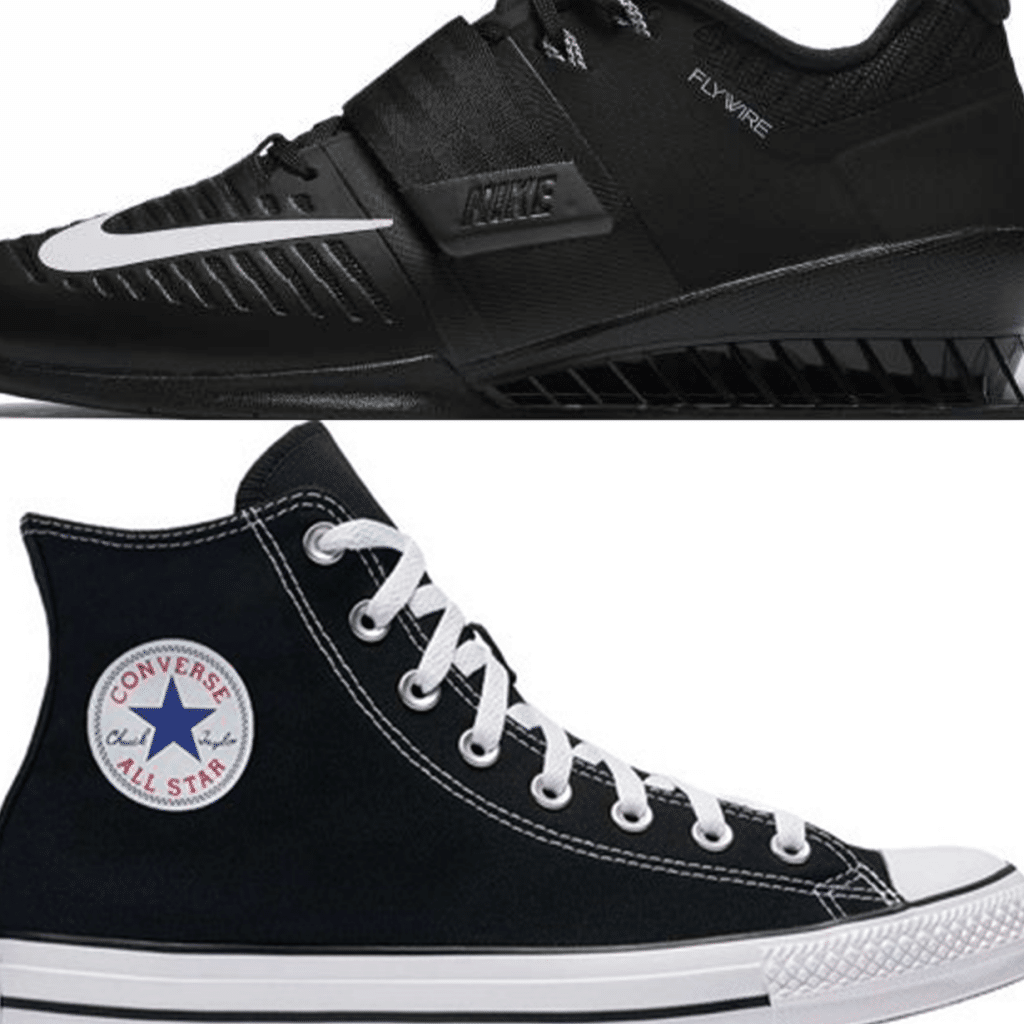You have to have the right tool for the job, and squatting is no exception. The real question is: which type of shoe is right FOR YOU? Elevated heel or flat sole? The answer isn't as straight-forward as you might think. It depends on several factors.
But I'm getting ahead of myself. Let's start with the benefits of each and go from there.
The benefits of weightlifting or squat shoes:
- The raised heel allows you to squat deeper while maintaining a more upright torso. A more upright torso minimizes shearing forces on the spine.
- The raised heel helps you to maintain a neutral arch and keeps your foot in a more stable position. This stability can help prevent valgus-knee collapse during the lift.
- The soles of squat shoes are made from non-compressible material: hard plastic or wood. The non-compressible material ensures that when you push into the floor, it pushes back. This enables you to lift a lot more weight.

The benefits of Chuck Taylors:
- Chucks have a flat sole or zero drop heel, which allows you to slide your hips back more/recruit more force from your glutes/hamstrings (as opposed to your quads).
- Chucks have a hard rubber sole, so there’s very little compression/loss of force production. In other words, when you push into the floor, it pushes back.

So which ones are right for you?
If you’re doing a HIGH BAR SQUAT (so if the bar is on your traps and not below your traps) AND have a relatively narrow stance (so hip to shoulder width), weightlifting shoes are the obvious choice.
If you’re doing FRONT SQUATS or OVERHEAD SQUATS, definitely grab your weightlifting shoes.
If you’re doing a LOW BAR SQUAT (so the bar is below your traps/above your rear deltoids), AND you have a medium to wide stance (so wider than shoulder width), Chucks are the better choice.
If your goal is to become QUADZILLA, weightlifting shoes are a great choice.
If you have BACK PAIN, weightlifting shoes can help to minimize the shearing force on your spine (think vertical torso), so they might be worth a try.
If you have KNEE PAIN, Chucks might be a better choice. That zero drop heel will force you to slide your hips back/recruit more muscles from your posterior chain, less from your quads.
If your knees collapse during squats, weightlifting shoes might be worth a try. (And if your knee valgus is a result of mobility or stability deficits, you still need to work on correcting those deficiencies - don’t use squat shoes as a bandaid.)
What if you’re a recreational lifter and don’t squat heavy?
If you’re lifting for general fitness and not squatting heavy, regular sneakers or minimalist shoes should be just fine. And if you’re new to lifting but think you’d like to eventually squat heavy, you might want to wait a while before buying in shoes. Make sure you know which type of shoes you’ll need before you make the investment!

When you're ready to take the plunge, Rogue has a extensive selection of weightlifting shoes. (They're pretty difficult to find locally). You can find Chucks almost everywhere!


